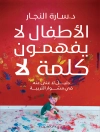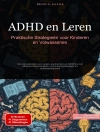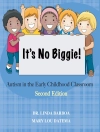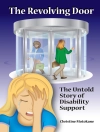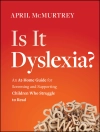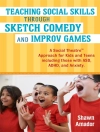The Wiley Handbook of Diversity in Special Education is a state-of-the-art reference showcasing cutting-edge special education research with a focus on children and youth with disabilities from diverse cultural, ethnic, linguistic, and economic backgrounds.
* Cutting-edge special education research focusing on children and youth with disabilities from diverse cultural, ethnic, linguistic, and economic backgrounds
* An authoritative contribution to the field, this work charts a new path to effective interventions and sets an agenda for future research
* Addresses disabilities from an international perspective
Innehållsförteckning
Notes on Contributors ix
Foreword xvii
Preface xxi
Acknowledgments xxv
Part I Including Students with Disabilities 1
1 The Convention on the Rights of Persons with Disabilities: Reconstructing Disability to Reimagine Education 3
Margaret Winzer and Kas Mazurek
2 Taking a Spatial Turn in Inclusive Education: Seeking Justice at the Intersections of Multiple Markers of Difference 23
Federico R. Waitoller and Subini Ancy Annamma
3 The Advancement of Inclusive Education for Students with Disabilities: An International Perspective 45
Silvia Romero?-Contreras, Ismael García?-Cedillo and Todd Fletcher
4 On the Purpose of Schooling: Inviting In, or Locking Out? 69
Shelley Zion and Wanda J. Blanchett
5 The Cultural Understanding of Inclusion in Diverse Settings: Support Services and Collaboration 87
Vasilis Strogilos and Elias Avramidis
6 Inclusion and Practice: The Perspective of Two Countries 115
Marjatta Takala and George Head
Part II Contemporary Issues in Educating Diverse Students 129
7 Students in Special Education: Issues, Theories, and Recommendations to Address Overrepresentation 131
Donna Y. Ford, Gilman W. Whiting, Ramon B. Goings and Shawn A. Robinson
8 Family Diversity: From the Margins to the Center 149
Beth Harry and Patrice Fenton
9 Education in Disability and Poverty Debates: Research Insights from Southern Contexts 167
Nidhi Singal
10 Supporting Language and Literacy Development for Additional Language Learners with Disabilities 183
Diane Haager and Terese C. Aceves
Part III Instruction 207
11 Teaching Mathematics to Students with Disabilities from Diverse Backgrounds 209
Delinda van Garderen, Apryl Poch, Christa Jackson and Sarah A. Roberts
12 Research in Science Education for Students with Special Education Needs 231
Jonte’ C. Taylor and Mary Grace Villanueva
13 Reading Instruction for Diverse Students with Learning Disabilities 253
Sylvia Linan?-Thompson and Hermelinda Cavazos
14 A Road Less Traveled: Writing Research for Diverse Students with Disabilities 277
Megan Dunn Davison and Linda H. Mason
15 Empowering Academically Diverse Learners in History Classrooms 299
Daniel R. Wissinger
Part IV Supporting and Assessing Diverse Learners 319
16 A Systematic Review of Peer Tutoring Interventions for Students with Disabilities 321
Elizabeth Talbott, Agata Trzaska and Jaime L. Zurheide
17 Technological Practices Supporting Diverse Students in Inclusive Settings 357
Dave L. Edyburn, Kavita Rao and Prabha Hariharan
18 Mathematics Assessment for Students with Diverse Learning Needs 379
Sarah R. Powell and Rebecca Zumeta Edmonds
19 Reading Assessment Practices for Linguistically Diverse Students at Risk of Developing Language and Literacy Difficulties 399
Sabina R. Neugebauer and Amy Heineke
Part V Preparation of Educators for Inclusive Environments 423
20 International Perspectives on Teacher Education for Inclusion 425
Petra Engelbrecht and Alison Ekins
21 Teachers Developing Knowledge in Low?- and Middle?-Income Countries: Toward More Inclusive Pedagogy 445
Alison Croft, Susie Miles, Rhona Brown, Jo Westbrook and Sarah Williams
22 Preparing Educators to Teach Literacy: Knowledge, Dilemmas, and Practices 467
Michelle Parker?-Katz, Marie Tejero Hughes and Georgette Lee
23 Leveraging Systems Change to Address Diversity in Special Education Teacher Preparation 493
Monika Williams Shealey and Loury Ollison Floyd
Index 509
Om författaren
Marie Tejero Hughes is a Professor in the Department of Special Education at the University of Illinois at Chicago, USA. She has been widely published in a variety of academic journals on topics related to literacy, teacher education, and family involvement. She has also held a number of leadership roles, including chair of the Special Education Special Interest Group at the American Educational Research Association and executive committee member of the Council for Exceptional Children’s Teacher Education Division.
Elizabeth Talbott is an Associate Professor in the Department of Special Education at the University of Illinois at Chicago, USA. She serves as past-president and legislative advocate for the Council for Exceptional Children-Division for Research. She is co-chair of the curriculum committee and faculty member in the National Center for Leadership in Intensive Intervention, and conducts research in the fields of special education, clinical psychology, and educational psychology.


